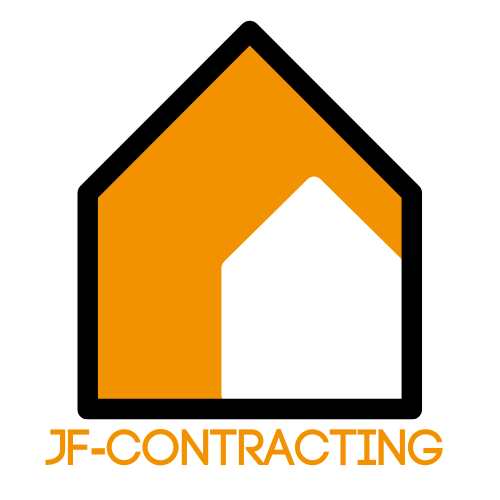Navigating the real estate market can feel like trying to find a needle in a haystack—while blindfolded, and with one hand tied behind your back. But fear not! With the right coaching tips, anyone can turn into a savvy property pro faster than you can say “location, location, location.”
Understanding Real Estate Coaching
Real estate coaching provides essential guidance for navigating the complex world of property transactions. Coaches help agents build skills, strategies, and the mindset needed for success.
What Is Real Estate Coaching?
Real estate coaching involves personalized training sessions aimed at improving an agent’s performance. Coaches draw from their experiences in the industry to offer tailored advice. This process includes goal setting and action plans focused on individual strengths and weaknesses. Coaches also utilize role-playing and market analysis to refine techniques and approaches.
Benefits of Real Estate Coaching
Benefits of real estate coaching include enhanced knowledge and increased confidence in decision-making. Agents often experience improved sales techniques and marketing strategies. Accountability provided by a coach encourages consistent progress. Networking opportunities arise through connections made during coaching sessions. Lastly, ongoing support ensures agents stay updated with market trends and evolving practices.
Key Coaching Tips for Success
Effective real estate coaching hinges on a few key strategies that promote success in the industry. By emphasizing clear goals and strong networks, agents can significantly improve their performance.
Setting Clear Goals
Setting clear goals enables agents to focus their efforts and measure progress. Agents identify specific objectives, such as closing a certain number of sales or expanding their client base. Prioritizing short-term and long-term goals helps maintain motivation. Regularly revising these goals ensures they remain relevant as the market evolves. Through accountability provided by a coach, agents can track their achievements and adjust strategies as necessary. Ultimately, defining and communicating goals establishes a roadmap to success in real estate.
Building a Strong Network
Building a strong network serves as a crucial foundation for a successful real estate career. Cultivating relationships with other professionals, including lenders, inspectors, and fellow agents, encourages collaboration and referrals. Networking events and industry gatherings provide opportunities to connect with potential clients and partners. Engaging actively on social media platforms also enhances visibility and fosters relationships. A solid network not only boosts credibility but also offers valuable resources and support. Strengthening these connections proves essential for navigating the complexities of the real estate market.
Effective Communication Strategies
Effective communication plays a crucial role in real estate coaching. Agents who excel in communication stand out in the competitive market.
Listening Skills
Listening skills significantly enhance understanding and rapport with clients. They establish trust by showing genuine interest. Agents practice active listening for better engagement during conversations. Clarifying questions help ensure accurate comprehension. Paraphrasing client needs reinforces understanding and demonstrates attentiveness. Continuous improvement in listening helps agents quickly adapt to changing client demands.
Persuasion Techniques
Persuasion techniques shape successful interactions in real estate. Agents apply storytelling to connect emotionally with clients. Utilizing facts and data strengthens arguments and builds credibility. Tailoring messages to meet clients’ specific needs increases effectiveness. Additionally, using positive body language conveys confidence and commitment. Implementing these techniques enables agents to influence decisions more effectively, encouraging clients to take action.
Continuous Learning and Development
Continuous learning fosters excellence in real estate coaching. Agents who prioritize education stay agile and effective in a competitive environment.
Staying Updated with Market Trends
Staying informed about market trends empowers agents to make timely decisions. Frequent engagement with industry news, research reports, and networking events helps agents anticipate shifts. Utilizing resources such as webinars and market analysis enhances understanding of local and national dynamics. Following influential real estate publications and leaders on social media allows for real-time insights. Committing to a routine of reviewing market data cultivates an adaptable approach, ensuring agents remain relevant and competitive.
Investing in Professional Growth
Investing in professional growth significantly enhances an agent’s skill set. Attending workshops and seminars provides exposure to innovative techniques and best practices. Joining professional organizations opens opportunities for mentorship and collaboration. Enrolling in advanced courses elevates expertise in specific areas, such as digital marketing or negotiation skills. Allocating resources for certifications and designations demonstrates dedication, making agents more marketable. Cultivating a habit of continual self-improvement positions agents for sustained success in real estate.
Real estate coaching offers a pathway to success in a challenging market. By embracing the strategies discussed, agents can refine their skills and enhance their confidence. Setting clear goals and fostering a strong network are crucial for growth and accountability. Effective communication and continuous learning further empower agents to navigate the complexities of real estate with ease. Committing to these principles not only positions agents for immediate success but also ensures they remain competitive in the ever-evolving landscape of the industry. With the right coaching and dedication, anyone can thrive in real estate.










